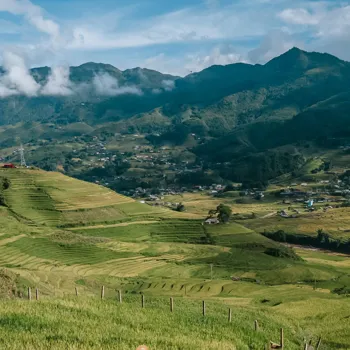Embark on Culinary Adventures: Cooking Classes While Traveling. Explore culture through food, create memories, connect with locals. Read more
For the globetrotting foodie, simply visiting a place and eating
its delights isn’t enough. There’s a growing trend of travelers wanting to dive deeper into the culinary heart of a destination. It is taking cooking classes while on the road. Forget just ticking off landmark monuments.
Instead, imagine mastering the secrets of authentic South Indian dosas in Chennai, or learning to craft perfect Gujarati snacks in Ahmedabad.
This isn't just about acquiring new recipes; it's about experiencing the culture, meeting locals, and creating memories that will last long after the vacation tan fades.
Cooking classes as cultural exchange through food
Cooking classes offer a unique lens through which to understand a culture. Food is deeply intertwined with history, traditions, and local ingredients.
Through a cooking class, you're not just following instructions, but you're also learning about the origin of the dish, the significance of the spices used, and the stories behind the family recipes.
For example, a class on Rajasthani cuisine may reveal the ingenuity of using limited resources to create incredibly flavorful dishes, reflecting the region’s desert landscape and resourcefulness.
This is a cultural exchange, with you learning, and potentially the local instructor learning about you, your culture. Cooking connects everyone.
Classes in local settings offer authentic experiences, fostering connections beyond tourism
These classes often take place in intimate settings, such as family homes, local markets, or small culinary schools. This provides opportunities to interact with locals. Learn about their daily lives, and get a taste of their hospitality.
Imagine haggling for fresh vegetables at a bustling market in Kerala. Your instructor guides you on selecting the perfect spices, and bantering with the vendors. Or assisting a family in their home kitchen as they pass down generations-old recipes.
This kind of interaction breaks down barriers and creates genuine connections that are far more fulfilling than a simple tourist encounter. It is the best way of understanding the people and the cultural ethics they follow.
Cooking classes while traveling reveal regional variations in dishes
One of the beautiful aspects of taking cooking classes while traveling is the opportunity to learn about regional variations in well-known dishes. For example, you might have eaten samosas countless times. But a cooking class in Punjab could introduce you to a heartier, potato-filled version.
This is served with creamy yoghurt and tangy chutney. Meanwhile, a class in West Bengal might reveal a sweeter, more delicate samosa. It is filled with spiced coconut and jaggery.
Discoveries like these add depth to your appreciation of Indian cuisine and highlight the incredible diversity that exists within the country. Such cooking ideas can be later implemented in your day-to-day cooking at home.
Cooking experiences enrich life with recipes, confidence, and memories from travels
Beyond the immediate enjoyment of learning to cook new dishes, these experiences often provide lasting benefits. You return home with a repertoire of recipes and the confidence to recreate the flavors you enjoyed on your travels.
You might even be inspired to experiment with new ingredients and techniques. Incorporating them into your own cooking style. Imagine hosting a dinner party and impressing your friends with your newfound expertise in making authentic Indian sweets.
You have learned from a local expert during your trip. The memories of the cooking class, the flavors of the food, and the stories shared will all come flooding back, making the experience all the more richer.
Cooking classes support sustainability and local communities in travel
Moreover, taking a cooking class can be a sustainable and ethical way to travel. Many classes support local communities by sourcing ingredients from local farmers and markets, and employing local instructors.

This helps to preserve traditional culinary practices and promotes economic development in the area. By choosing cooking classes that prioritize sustainability, you can ensure that your travel experiences have a positive impact on the communities you visit.
You are also contributing to a form of cultural preservation, that will help preserve tradition for generations. You are sharing a story, and your experience.
AI Generated Content. Glance/InMobi shall have no liability for the content










